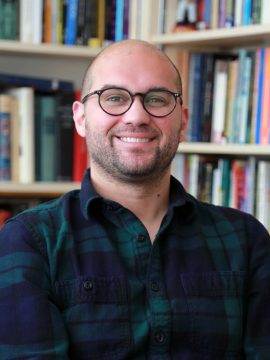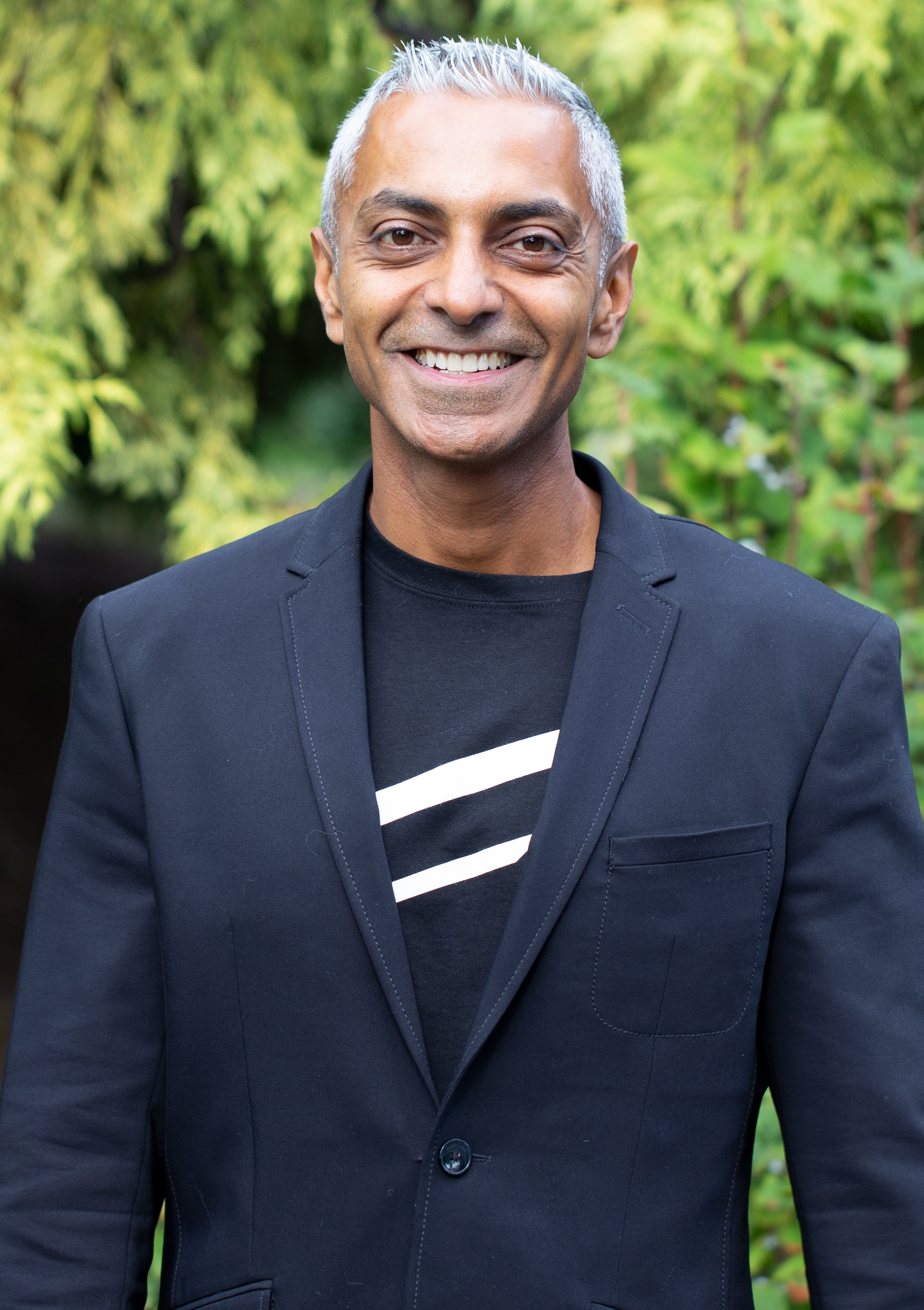Congratulations to Profs. Seth Abrutyn and Amin Ghaziani for their recent appointment as Editors of Contexts, a publication of the American Sociological Association that brings the best sociological research to the general public and scholars outside the discipline. The magazine includes feature articles, culture and book reviews, and photography, as well as analysis of the latest social science research.
We spoke to Profs. Seth Abrutyn and Amin Ghaziani about their recent appointment.


Associate Professor Seth Abrutyn
Congratulations on being appointed as new editors of Contexts, Prof. Abrutyn and Prof. Ghaziani! Could you tell us more about your roles, and what you’ll be working on?
Seth: As co-editors, Amin and I are responsible for curating essays and content for four magazine issues each year. Like Psychology Today, Contexts is the public face for sociology. It strives to reach a broad audience in highly accessible ways, bringing the public into greater contact with the sociological imagination. Past editors have done an incredible job of meeting this goal, which we hope to build on. This means using all the social media tools at our disposal, producing timely and interesting thematic issues, and trying to bring voices from every corner of sociology to the table.
Amin: As Seth mentioned, our roles are curatorial. To curate something means of course to collect it, often with great care. In this regard, what I personally hope to accomplish is a more generous engagement with what the role of a curator can entail: less gatekeeping, more forward-thinking conversations, provocations, and building intellectual communities.


Professor Amin Ghaziani
What do you think Contexts could benefit the general public, and how could the journal help break down scholarly jargon to make sociological research more readily available for people outside the discipline?
Amin: In a New York Times article, the Pulitzer Prize winner writer Nicholas Kristof exclaimed in his headline, “Professors, We Need You!” The piece incited an impassioned conversation among sociologists about the relationship between the academy and the public. I have the article right here. Notice what he says: “Some of the smartest thinkers on problems at home and around the world are university professors but most of them just don’t matter in today’s greatest debates. The most stinging dismissal of a point is to say: ‘That’s academic.’” As in-coming editors of Contexts, our task is to continue to excellent role of prior editors in responding to Kristof’s call. Sociologists have a vital contribution, an incomparable one I would argue, that we can make to public conversations. The magazine is one of the most visible outlets where we can express our unique disciplinary voice. It’s part of an ecology of opportunities we have at our disposal, including op-eds, blogs, podcasts, and as Seth mentioned earlier, a variety of social media tools. Sociology is tuning in more and more to translating our work for multiple audiences. This I support this direction, and find it personally exhilarating.
Seth: Sociology is quite literally the science of society, which means it reaches into every corner of our lives, as Amin said. The problem with any science is that the stylistic conventions of the profession do not always translate their substance into accessible or meaningful knowledge for a broader audience. Contexts strives to accomplish this important task: to draw the public and sociological imaginations into greater alignment. Too often, modern Western society pushes a highly individualistic narrative, but sociology pushes back against this reminding us that our biography cannot be detached from the broader historical and cultural context in which our lives play out. Contexts will hopefully challenge our readers’ assumptions, give them a different lens to understand events, issues, and people, and transform the way they feel, think, and do everyday life.
As mentioned in ASA’s announcement, “Contexts is a site of translation and is the public face of sociology.” What do you hope to contribute to the publication based on your expertise and experience?
Seth: I was trained as a theorist, but my current research interests focus on youth suicide, mental health, and help-seeking behaviors. On the one hand, I read widely and have broad interests in sociology. This should translate into diversifying the authorship and substantive content of the magazine. On the other hand, I am deeply committed to a sociology that has practical implications for families, communities, and policy makers. My vision of Contexts is a blend of translating social science into the type of content that makes it hard to put down once you pick it up while also making clear the tools sociology provides for thinking about and potentially solving serious social problems.
Amin: Seth and I are very different types of scholars. While he was trained as a theorist, I work in the sociology of culture, sexualities, cities, and social movements. This is why our partnership is powerful. We reject intellectual silos. Instead, we are both committed to inclusive and expansive voices in our curatorial roles. Seth addressed this point well. I want to add one other important thing. This is the first time that Contexts has been based at an institutional outside the United States. It is a great honour for us to bring the magazine to UBC Sociology. I personally would like to use our location in Canada as a strategic opportunity to reframe and expand the sociological imagination to an international sociological imagination. Where in the world we live, work, and experience life matters. Places matter. Under our editorship, I hope to showcase the international face of our discipline, and our relevance to global debates.
What are you most looking forward to in your new roles?
Seth: There are two things I am most looking forward to. First, I am excited to be a part of a team committed to shaping the public discourse around various social issues and problems. It is humbling to think that Amin and I can reach a diverse audience while giving voice to a diverse array of social scientists who may not have imagined their work being read broadly. This feels like the most satisfying aspect of the editorship. Second, I am eager to read all of the proposals submitted by professional sociologists from all over the world. There is something truly gratifying in learning about the ideas that they feel need to be conveyed to the public and the different approaches they are taking to making these ideas accessible. One of the rewards of being an academic is the privilege to read and study whatever we want, but it is too easy to get stuck in one’s primary research area. Being an editor means getting to play in lots of people’s sandboxes that I wouldn’t ordinarily have the opportunity to play in.
Amin: If the most stinging dismissal of a point is to say that it’s academic, then I’m most looking forward to the rebuttal that we represent. Issue after issue, it will be a pleasure to watch journalists, policy makers, and legislators take more seriously the work that sociologists do, while also watching our colleagues take more seriously the importance of translating our expertise for wider audiences.


